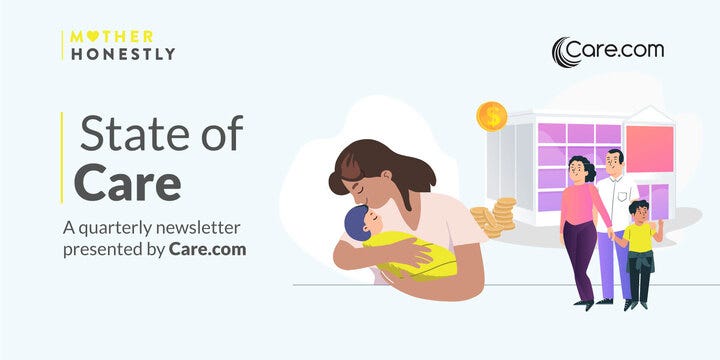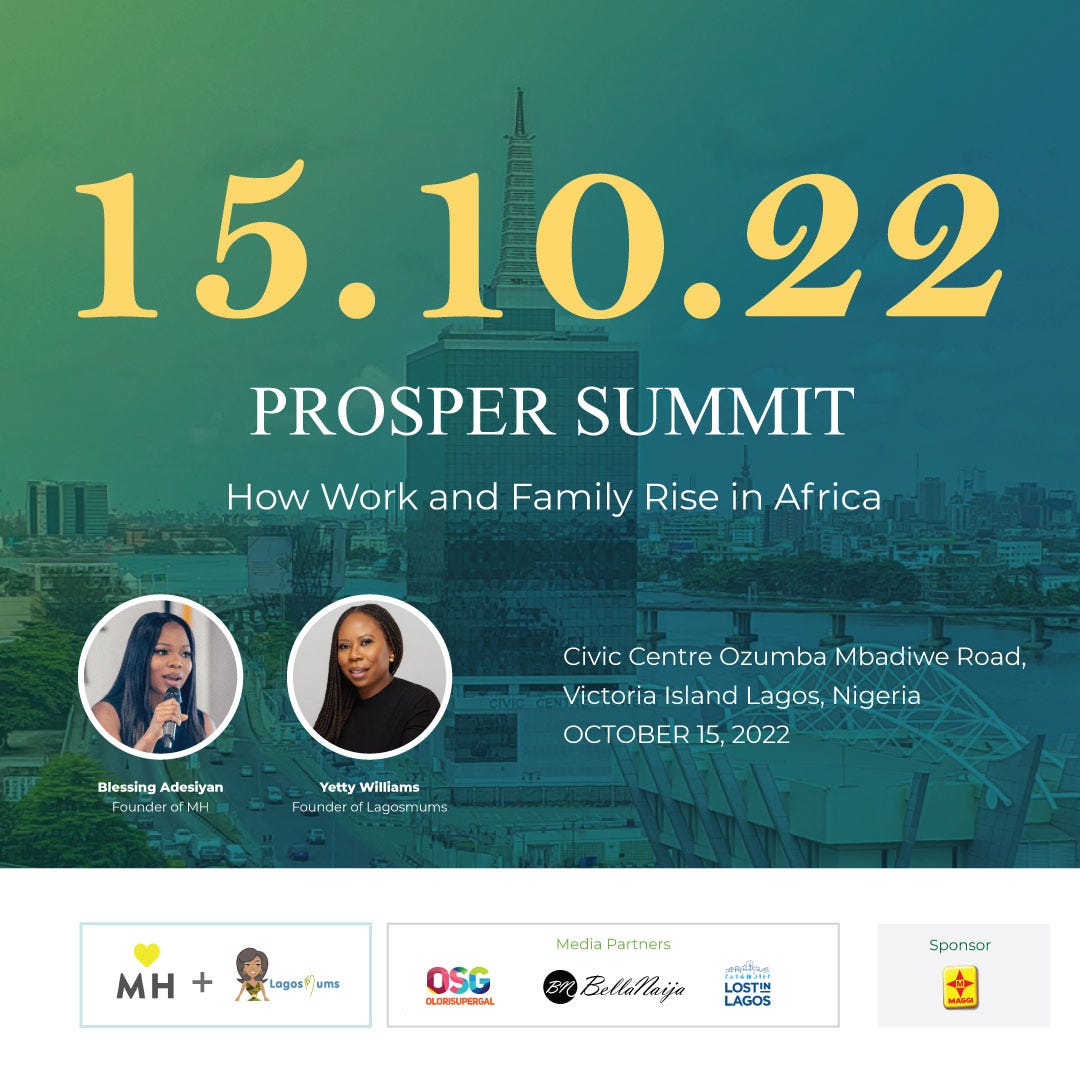A few months into the pandemic, a friend sent me a video titled The Great Realization. In it, a dad reads a poem to his son about a time before the virus, when “work-life balance broke” and “every toddler had a phone.” Lit by flickering candlelight, he goes on to describe a world transformed by the pandemic, because everyone had learned to slow down, enjoy time with family and go on a run.
I regret to say I didn’t find the video inspiring. Like many moms, I was struggling to take care of my two kids while working full time. My previously equitable partnership with my husband was unraveling as I managed my son’s virtual schooling. I also suspected that the pandemic would be a massive setback for working women.
Unfortunately, I was right. A recent BPC-Morning Consult poll found that caregiving responsibilities led roughly one-third of working mothers to reduce their work hours (33%), change jobs to have more flexible hours (29%), choose to not pursue career opportunities (35%) and modify their career ambitions (37%) during the pandemic.
There may be a grain of truth to the poem’s sentiment, however. In 2021, 47.8 million people quit their jobs, nearly 4 million per month, the highest average on record. Some of those were moms who were overwhelmed by child care responsibilities. But many people did indeed learn to slow down, enjoy time with family and pursue their passions. Call it the Great Resignation, Great Awakening or Great Realization. It’s clear many people are looking for less intense careers and roles.
But if the ultimate point of the poem was that families finally relinquished our chaotic lives and learned to reconnect over Scrabble during the dark days of 2020, I’m skeptical. If anything, I’d wager parents are busier now as we try to help our kids “make up” for lost time at school, with family, and in extracurriculars. I realized I had fallen into this trap when I insisted to my husband we simply must sign our 3-year-old for gymnastics and ballet this fall, since she had only taken one class in the last two years.
That impulse towards more—more extracurriculars, more homework help, more everything—is known as intensive parenting. It first took root with middle-class American families in the mid-to-late 20th century, but research suggests it’s now the preferred parenting style across social classes and it’s spreading in Europe, too. The reason it’s unlikely to go away—even if we pledge to scale back on soccer sign-ups—is because scholars believe the phenomenon is partially tied to inequality and a poor social safety net. “The common denominator in countries where intense, achievement-oriented parenting abounds is a large gap between the rich and the poor. Conversely, where inequality is low and governments provide safety nets, a more relaxed, permissive parenting style holds sway,” argue economists Matthias Doepke and Fabrizio Zilibotti, the authors of Love, Money and Parenting. Income inequality in the U.S. is higher than in other advanced economies, and we don’t have paid family leave or subsidized child care like our peer nations, either.
American working moms now spend just as much time taking care of our children as stay-at-home mothers did in the 1970s—and it’s exhausting us. “Rafts of research prove that intensive parenting mainly serves to burn out parents while harming children’s competence and mental health,” says Elliot Haspel in a recent piece for The Atlantic titled “How to Quit Intensive Parenting.”
Haspel suggests embracing the concept of “good enough” parenting—by kicking the pursuit of perfection to the curb and resisting the rat race to get our kids into a top college. I like the idea. I also think parents should ditch the DIY mentality and embrace outsourcing. It’s OK to ask for help—or pay for it, if you can afford it. We talked with the experts at Care.com for the best ways to do just that.
The Fix: 4 Ways to Free Up Your Time
By Maressa Brown, Senior Editor, Care.com
If you feel stretched too thin and just plain exhausted lately, you’re far from alone. A recent report from Ohio State University on pandemic parenting found that 66% of parents reported being burned out, and women were more likely than men to have parental burnout. It’s a case for outsourcing, when possible, so you have time to take care of yourself, too. Here are ways you can get extra support:
1. Tutoring
Whether your child could use a little extra support in a particular subject or could use a bit of one-on-one guidance to get through their coursework, consider hiring a tutor. Tutors go beyond helping your child keep up with their homework or gaining an academic advantage. What’s more, your child’s tutor could end up motivating them to learn even more while instilling self-confidence.
2. Before- and after-school child care
Finding before- and after-school child care can free up a few hours every morning and/or early evening. At the same time, your child will be provided with the space and time to get their homework done, chill out and socialize—all of which can benefit their happiness and growth.
Check out a before or after-school enrichment program. Or you could hire a nanny who will help get your kids out of bed, dressed and fed before driving them to school or walking them to the bus stop. Similarly, an after-school nanny can pick up your children from school or the bus stop, drive them to after-school activities, make tasty, healthy snacks, help with homework, plan activities or whatever your family needs. Many will also perform some light housekeeping if you agree up front.
3. House cleaning
Whether you’re concerned that it’s not quite in the budget or it feels like a logistical hurdle to find someone competent and trustworthy, many stressed parents find that hiring house-cleaning help ends up being well worth it, because it reduces stress, increases earning potential and even serves to promote domestic bliss with a partner.
4. Self-care sitting
Who says you have to wait until date night or a special occasion to hire a sitter? Taking a timeout to care for yourself and pursue personal joy is a must. Even for a couple hours here or there when you want to make sure to get to that Pilates class or meet up for coffee with a friend, no reason is too small to justify some time off for yourself.
TAKE THE SURVEY:
Mother Honestly is very proud to present our first summit in Africa! We are partnering with Lagosmums to present the first edition of the Prosper Summit, which focuses on how the modern African family will prosper post-pandemic. This is a great opportunity to bring our communities together as we tackle pressing issues affecting women and families in Africa and provide actionable solutions. As we prepare for the summit, please take the “State of Family and Work Survey.” Help us understand the modern African family. Tell us about your experiences as a working parent in Africa, so we can work together for real change. It takes just seven minutes! Take the survey here.
GET 1-ON-1 ADVICE:
Dr. Whitney Roban is a renowned Family, Educational, and Corporate Sleep Specialist, and the founder of Solve Our Sleep. She sits on the advisory board of the American Sleep Association, and serves as a resident sleep expert and advisor to various wellness companies. Her mission is to provide the sleep education and support families need to not only survive, but to thrive. Book Whitney today!
HATE TO SEE IT
The wage gap starts early. A pay gap emerges between men and women within three years after they join the workforce, even among those receiving the same degree from the same school, according to a Wall Street Journal analysis of federal tax records data from 2015 and 2016.
Serena Williams is retiring. The tennis legend told Vogue she will instead focus on her family and venture capital fund. “Believe me, I never wanted to have to choose between tennis and a family. I don’t think it’s fair. If I were a guy, I wouldn’t be writing this because I’d be out there playing and winning while my wife was doing the physical labor of expanding our family,” she said.








@audrey thank you for this ON POINT article!
NWLC's research points to the same outcome for women: https://nwlc.org/resource/resilient-but-not-recovered-after-two-years-of-the-covid-19-crisis-women-are-still-struggling/
And women are still missing 100k jobs in comparison to men as a result of this pandemic https://nwlc.org/resource/men-have-recovered-net-jobs-lost-to-pandemic-while-women-are-still-missing-100000-jobs/